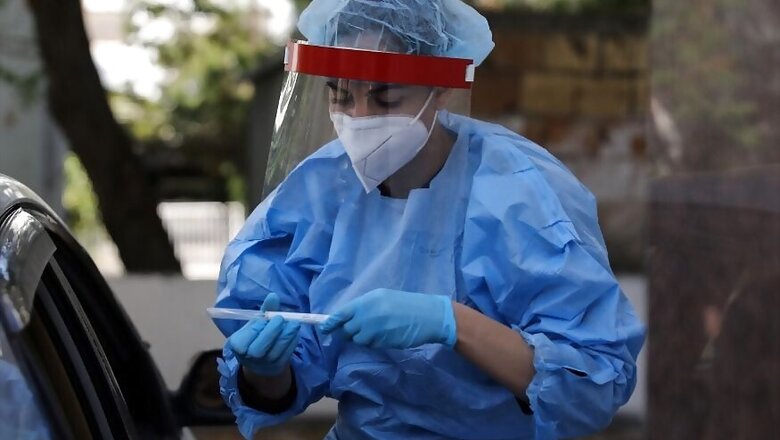
views
The development of new vaccines during the time of a global pandemic is one of the most key challenges in a battle against infectious diseases. Given this, creating optimal conditions for developing these vaccines is one of the most argued debates in recent years. As explained by Nobel laureate Joseph E Stiglitz, economist Arjun Jayadev and professor Achal Prabhala, developing a drug without public intervention will make those requiring life-saving drugs and vaccines reliant on a monopoly-driven system in which profit would be favoured over people.
In an article titled 'Patents vs. the Pandemic' penned by the trio for an NGO Project Syndicate, they have questioned whether research efforts during a pandemic should be entitled to new patents. They discussed ideas over how medical professionals could develop a vaccine without considering pharmaceutical monopolies and Intellectual Property Rights (IPRs), similar to how the flu vaccine has been made for over 50 years now.
Considering the "open science" theory proposed by Yale Law School's Amy Kapczynski, the World Health Organization’s Global Influenza Surveillance and Response System (GISRS) and other experts assemble twice a year to analyse the latest data on emerging flu strains, and decide what is to be included in each year's vaccine. These vaccines are developed by a network of laboratories across 110 countries and are funded almost entirely by governments, and partly by foundations.
WHO's GISRS focuses solely on protecting human lives, rather than making profit and it uniquely gathers, interprets, and distributes knowledge for developing different vaccines. This proves to be an advantage for many countries, who can then purchase the vaccine at an affordable rate for the public.
However, commercial pharmaceutical companies have been, over the years, privatising knowledge resources by taking control over life-saving drugs through unwarranted, frivolous, or secondary patents, and by lobbying against the approval and production of generics.
With Covid-19 becoming a global pandemic, it is obvious that these companies will now try to claim monopoly over its drugs and vaccines, which will ultimately hamper human lives across countries. Monopoly control over the technology used in testing for the virus has already hampered the rapid roll out of more testing kits.
Multiple patents are in force in the world for three of the most promising treatments for Covid-19 - remdesivir, favipiravir, and lopinavir/ritonavir. These patents are preventing competition and threatening both the affordability and the supply of new drugs for the virus.
Most vaccines available in the market today are patented. For example, PCV13, the current multi-strain pneumonia vaccine administered to babies, costs hundreds of dollars because it is the monopoly property of Pfizer. Pertaining to this, many people, especially in developing countries, cannot afford the vaccine. Over 1 lakh infants die in India from pneumonia every year, while the vaccine brings an annual revenue of $5 billion to Pfizer.
Scholars and health advocates have long argued that monopolies deny public the access to life-saving medicines which would have otherwise been available under an alternative system, just like the flu vaccine produced every year.
Some countries have already approached for alternatives to monopoly-based drugs for treating Covid-19. For example, the Costa Rica recently called on the WHO to establish a voluntary pool of IPRs for Covid-19 treatments, which would allow manufacturers to supply new drugs at affordable rates.
However, the idea of patent pooling is nothing new. For years now, the United Nations and the WHO have sought to increase access to treatments for HIV/AIDS, hepatitis C, and tuberculosis through Medical Patent Pool. And now, they have extended the programme to include coronavirus in it. The motive behind this is replacing a monopoly-driven system with one based on cooperation and shared knowledge.
During the current pandemic where thousands are losing their lives every day, it is indeed necessary for the public to dump myths that necessitate the need for IP regime, and start practicing new ideas that promise social usefulness rather that mere profitability.

















Comments
0 comment